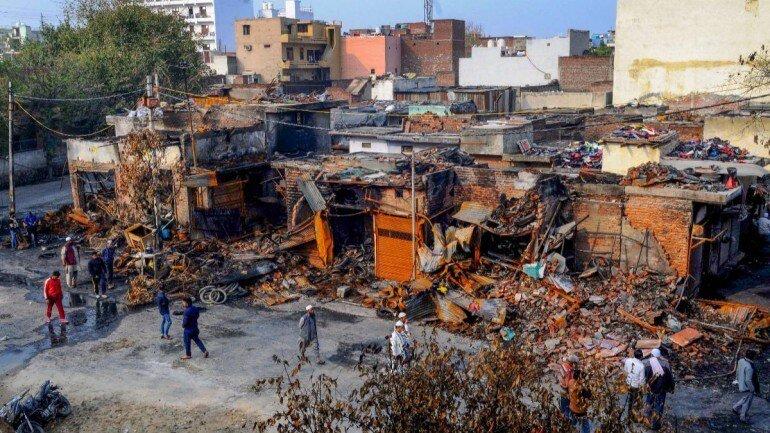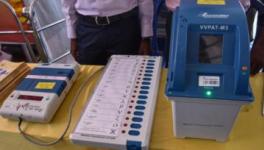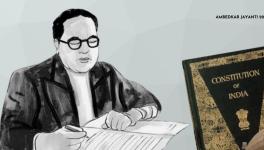Delhi Violence: What We Know a Month After

When you talk of communal harmony in these hate-filled times, you hardly feel normal. To imagine a time of peace today, to talk of syncretic traditions, seems like bringing up irrelevant misnomers. The Ganga-Jamuni tehzeeb of yore seems like a distant dream.
However, if there ever was a time that needed more rather than less talk about communal harmony, it is now. Now, a month after the violence in Delhi in which dozens—mostly Muslims—died and their properties were destroyed, is when we need to build bridges between India’s two largest communities, the Hindu majority and the Muslim minority.
Talk about communal harmony may seem a ‘bit premature’ to some, given the wider trend of hate permeating the country. Undeniably, for those completely devastated, left homeless, financially destroyed, bereft of their near and dear ones, the world may never be the same place. Take Shakir, who lives in Shiv Vihar, one of the localities worst-affected by the February violence. His three-storey house, which he had built just last year with all his savings, has been burnt to a cinder by a rampaging mob that chanted Jai Shri Ram and other more provocative slogans, while reducing his belongings to pile of burnt furniture scattered within broken walls.
A beautiful mosque very close to his home was also reduced to ashes. Forty-five-year-old Shakir and his family still go to see the burnt interiors of the building that they had proudly called home merely 24 days ago. While a Muslim religious organisation, Jamiat Ulema, has assured the family that they will rebuild their house and the mosque, he is still plagued by doubts and anxieties. Talk of Hindu-Muslim bonhomie makes him feel incredibly distraught. That communal relations would get rebuilt in the near future seems a highly unlikely prospect for him, and understandably so.
However, not all hope is lost. Abdul Wakil, whose shop on Gadha Chowk, also in Shiv Vihar, was burnt, is a symbol of that hope which needs to be fanned. His bike repair shop was completely burnt in the violence. Last week, the putrid odours of burnt rubber still cloaked the insides of his tiny ten-by-eight shop. However, Wakil does not seem despondent. He’s even open to the prospect of rekindling friendly ties with Hindu shop-owners close to his store. One of his old friends, a Hindu, has called him numerous times since the violence, asking if he needed money. Perhaps that is why he has not lost hope of returning to peaceful coexistence, sooner rather than later. To see him exchange pleasantries with people in the vicinity of his shop, now in a shambles, testifies to the honesty that underpins his remarks.
It would be impossible to deny that restoring communal harmony is critical in times of heightened tensions. According to Muqtedar Khan, a professor of Islam and Global Affairs at the University of Delaware, communal tension is not just bad for the well-being of a citizenry, but that “the biggest threat to national security and integrity is disharmony.” He says, “Harmony is the soul of a nation’s well-being, central to its existence and development.”
It is perhaps a truism that a house divided will not stand. Yet, all those who wish to paper over communal conflict or want violent episodes to be forgotten, ignore the burden communalism imposes on public and private resources and also how undermines state capacity. “It allows foreign enemies to exploit divisions as well,” says Dr Khan. It can take decades to build confidence and mutual trust, which can be eroded by just one act of violence. “In India, not only do the communities need to build trust, but in the case of minorities, even the state has to earn their trust,” he says.
Rohit Kumar, a career counsellor who organises workshops for school and college students in Delhi and its suburbs says that it is important to inculcate basic trust between members of all communities and between individuals from different backgrounds. “Trust,” he points out, “is critical for people to be able to work together with common goals.” Thus communal disharmony strikes at the very root of human decency, which is a pre-requisite for any society to be able to function.
Kumar refers to Abraham Maslow’s motivational theory in psychology, according to which there exists a hierarchy of human needs. Right after food, safety and shelter, human beings need to feel that they “belong”. “Communal strife destroys people’s sense of belonging. They end up identifying with their own ‘side’, instead of feeling that they are part of a whole,” he says.
It is this which creates a strong sense of fear, anxiety and a massive loss of self-respect—and respect for the Other. The result is more misery and greater anger. Ultimately, society regresses instead of progressing.
Today, for a sizeable section of India’s elites, creating communal discord has a massive payoff. Yet, those who believe in unity choose to focus on the positives—for instance, the awe-inspiring humanitarian assistance provided by ordinary citizens for victims of the recent violence.
“The government was nowhere to be seen. Ordinary citizens stepped forward to help survivors,” Kumar says. These Good Samaritans, who took upon themselves the responsibilities of the state, must be applauded. “This is the kind of effort we also need to inculcate communal harmony. We will have to redouble efforts to do so,” says Kumar.
Amity, however, will not be built on a weak foundation. Nor will it work if it tries to paper over the misgivings of those who feel sceptical about restoring communal harmony, especially given the prevailing political conditions. Umair, who worked with an advocacy group before he shifted to academia, says, “It will not work. The riots were not connected with communal harmony or lack of it. Riots in India are generally orchestrated by trained, equipped and informed miscreants. Such violence is never the job of angry mobs. Riots are the handiwork of miscreants who are well-informed—who know what to destroy and whom to kill. Hiding behind talk of communal harmony will not work.”
Hanif Lakdawala, a Mumbai-based educator and vice principal of a college points out another important aspect: to try and build communal harmony on the foundation of the basic premise that ordinary Hindus are responsible for riots is simplistic, he says. He adds: “Riots are orchestrated by a combination of vested interests, foreign agencies, mafia interests, and so on. We need detailed research by qualified people who are willing to live in the affected areas, who can identify the accurate causes, the instigators and the actual rioters.”
Harmony of any kind cannot thrive in a void. It also needs a strong flavour of justice of both the restorative and punitive kind. Concrete steps need to be taken to restore trust between those who have been wrenched apart by the workings of a divisive ideology, and, in that context, says Lakdawala, “Our first priority should be to identify and put the rioters behind bars.”
Seeking justice requires a thorough and unbiased police investigation, in which concrete evidence is gathered, legally-sound testimonies and eye-witness accounts are complied. And in accomplishing this, the participation of lawyers and forensic experts will be necessary too. Indeed, almost everything we know about the riots in Northeast Delhi are based on conclusions drawn by individuals, journalist’s accounts or activist’s reports. “These may not be the best kind of legal evidence. They are not reliable or sufficient when we seek legal remedies. But let us also not assume that we need harmony because we have had a riot situation—communal amity is not a choice, it is a must,” Lakdawala says.
Indeed, even votaries of amity and peaceful co-existence do not for a moment deny the need for a full commitment from all stakeholders. “Only when all are on board,” as Khan says, “Can steps for restoring communal harmony be taken.”
What citizens can do in these times is easy, at least on paper—they have to get to know one another. They have to also reach out to people from other faiths and spend time with each other, doing things together. “Yes that seems a difficult task during a lockdown, but it is now that we must reach out to a family member or friend who belongs to a faith or belief system different from ours. “And we must offer them material and emotional support,” Kumar says. “Also, next time, let us vote for parties that believe in equality of all human beings,” he says.
In brief, it is easy to hate those we perceive as very different from ourselves. It is just as hard to hate those whom we see as human.
The author is a writer and columnist. The views are personal.
Get the latest reports & analysis with people's perspective on Protests, movements & deep analytical videos, discussions of the current affairs in your Telegram app. Subscribe to NewsClick's Telegram channel & get Real-Time updates on stories, as they get published on our website.
























